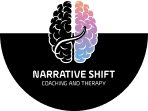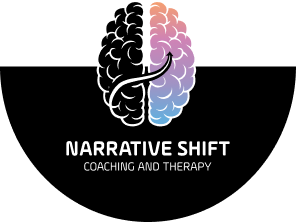



Therapy Services
Though we often forget it, all of us started out as small children with an extremely limited ability to influence our lived experience. Even if we believe we had a truly blessed childhood with loving family and parents, there are still myriad ways we can experience traumatic or damaging events which stick with us long after we have become adults. Whether it was a painful accident or injury, hurtful words from a close peer or family member, or instability in our home and family structure, a part of us can carry the weight of these events with us long after they have taken place. In cases of extreme distress and trauma our brains may even bury the memory of the event away from our conscious awareness.
Even if we have trouble bringing these memories to mind there is a part deep inside of us that still carries these burdens. We call this our “inner child” and it is a part of ourselves that many of us neglect whether through ignorance or choice. Our inner child can manifest in many ways from a visceral physical reaction to specific events like hard braking in traffic, a general lack of motivation or depressive symptoms, or even damaging behaviors like drinking or drugs to avoid engaging with our emotional trauma. Though acknowledging our inner child might feel a bit “out there”, they are very real and can have tangible effects on our day to day lives. Luckily, it is never too late to recognize and re-engage our inner child and Justine Ruotolo has extensive experience in helping clients access this hidden part of themselves.
Learning how to access and listen to our inner child is really about reconnecting with our true selves. Sometimes it is identifying the activities or desires we connected with when we were younger and attempting to reintegrate them into our lives. Other times it is about bravely facing our feelings and learning to speak to ourselves in the soothing, empathetic way we might with any other child. Much of this is achieved by being vulnerable with ourselves, which can be quite difficult at first, and accepting our own fears, desires, feelings, and anxieties without judgment.
Justine helps clients to develop these skills and achieve this mindset by first modeling this in one-on-one discussions about past history and childhood. As clients get deeper into “the work” of speaking with their inner child, other methods such as meditation and workbook exercises might be used to deepen the connection. These activities might feel strange at first and clients only need to engage with them if and when they are ready. Inner child work is a slow process of self-discovery and often progresses at its own unique pace for every person, however, a genuine feeling of deep peace and self-acceptance can be achieved.
Addiction comes in many forms including drug and alcohol use, food, gambling, or playing video games. We might continue to engage in an addiction even as it negatively affects our relationships, careers, and personal goals or ambitions. The cycle of addiction is often one of shame where we recognize a need to make a change, but then are pulled back by the need or desire to engage just one more time.
Others without a predisposition towards addiction rarely understand how difficult it is to avoid these addictive behaviors. Genetics and past trauma both play an important role in the development of addictions which many people fail to recognize. They see addiction as simply a matter of willpower and see the inability to escape addiction as a moral or personal failing. However, the stigma and shame around addiction often add to the difficulty of seeking the help and support needed to remain in recovery.
Empathy and compassion for ourselves is often essential to effectively confronting our addiction and a skilled therapist can be the model we need to identify the root causes of our substance use or damaging behaviors. At Narrative Shift we value creating a judgment free space where clients are able to build relationships on a foundation of trust. As client and therapist become more comfortable with each other, healing can begin as the causes of challenging behavior and positive goals for recovery become more clear.
As we begin to understand the sources of the addictive behavior we can start to develop a strategy and toolkit to avoid addiction triggers as well as identify potential coping mechanisms. Mindfulness and radical self-acceptance can help us be more aware of when we are feeling the pull of addiction then face it head on with understanding and self-compassion. Even as we grapple with harm reduction, abstinence, and even relapse related to our addictions, it can be invaluable knowing that we have a kind and caring therapist in our corner to turn to as we continue on our journey towards recovery.
The effects of anxiety can be physical, mental, and emotional, taking up so much of our attention that it is difficult to focus on anything other than our discomfort. We might have physical symptoms like feeling sweaty, restless, or light headed. Emotionally we could experience a sense of dread or a desire to run away and escape. It may even drive us to engage in specific behaviors like excessively washing our hands or avoiding difficult tasks that we need and want to get done.
Anxiety is particularly difficult because it can often be invisible to our loved ones and peers. On the outside we might seem fine, but inside our minds are racing and we are feeling physically unwell. All of these sensations can be overwhelming and start to inhibit our ability to engage with life with the sense of excitement, peace, and stability we desire. While it can be difficult to put these feelings into words and seek help, Narrative Shift’s Justine Ruotolo has personal as well as professional experience dealing with anxiety and are eager to share their knowledge!
At Narrative Shift we know sharing our anxieties is intimidating and its symptoms can be debilitating. However, we want our clients to know that they can share their experience in a judgment free and empathy filled setting. Sometimes simply discussing our anxieties openly with someone who can listen with compassion may begin to relieve some of the pressure and when we compare that with a shift towards curiously exploring our anxiety real healing can begin.
While it is completely normal to try and avoid thinking about our anxieties, this unfortunately often leads to them gaining even more power over our lives. When we face them head on with compassion and curiosity, however, we can learn the important lessons our anxiety might be trying to teach us about our past or present. Anxiety is really just the way our brains and bodies try to protect us from danger, but in the modern world that anxiety can become overpowering in situations that are not actually life threatening.
Working with a skilled therapist like Justine, clients gain knowledge and learn coping strategies that can empower them to face or even embrace their anxiety in a way that improves our self knowledge and agency. By making a narrative shift from a world of “what ifs” to a world of “what is” here in the moment we can be more present and reignite joy, progress, and meaning in our daily lives.
When depressed we can become unable to access joy, motivation, and even have trouble getting out of bed to face the day. We might be low energy, sleeping more than normal, uninterested in eating or socializing, and incapable of concentrating on tasks we have historically completed easily. The most insidious part of depression is how it can make us frustrated at our inability to “just snap out of it” leading to a cycle of shame or guilt that makes it even harder to engage in the activities that may potentially make us feel better.
Those who cannot feel what we are going through may not understand or empathize with our struggles. They might tell us how things are “not that bad”, give us unrequested advice like “try exercising”, or complain about how we are bringing things down. In other instances, we might be very good at hiding our depression from friends or colleagues and silently suffer without letting anyone else know. Though it is by no means easy to climb out of depression, there is still hope and at Narrative Shift we create a judgment free space where healing can begin.
Justine wants to empower clients dealing with depression to treat themselves with empathy and compassion. Depression is an illness, not a moral failing, and can be influenced by genetics, trauma, chronic stress or burnout, and difficult life events. That said, there are still strategies and methods that can be effective in helping recover from chronic depression and it all starts with building a caring, empathetic connection with an experienced therapist like Justine here at Narrative Shift.
We begin by really listening and learning what life factors, historical and current, may be contributing to their current struggles with depression. A therapist can help us to recognize how our lack of energy or motivation are connected to the very real and challenging difficulties we are dealing with in our daily lives. By helping us develop our capacity for self-compassion we can start to learn to gently encourage ourselves to seek the support needed to make positive change in our lives.
Changes in diet, exercise, and perspective taking as well as strategies for gently encouraging ourselves to get started on beneficial activities CAN be effective, but only if we start slowly from a place of loving, reasonable expectations for ourselves. Along the way, Justine will serve as a supportive ally and model to help us shift our narrative from one of despair and “what was” in the past to one of hope and “what is” in the present.
When we experience trauma, emotional wounds from that moment never have a chance to heal and we can end up reliving those moments repeatedly during the course of everyday living. Each time we remember the event it can feel almost as though we are right back in the moment, complete with the same physical and emotional sensations, which can be exhausting and debilitating.
It can begin to feel as though we are caught in an inescapable cycle of misery and even joyful moments are tainted by the fear that we might once again be gripped by that familiar sense of fear or panic. However, this does not have to be the case and EMDR makes it possible to change our emotional relationship to these memories in a way that makes them less real and threatening.
Eye Movement Desensitization and Reprocessing, or EMDR, is a well researched and widely accepted therapeutic treatment for the challenges related to post-traumatic stress. It can drastically, over a handful of 90 minute sessions, reduce the distress we feel when accessing traumatic memories. EMDR uses a specific combination of traditional talk therapy and eye movement to quickly access and change the associations we make with problematic memories or beliefs.
During EMDR Justine helps clients shift the narratives they have around traumatic moments. Trauma can result in the creation of shame based memories with a narrative where we were somehow at fault for events where we were really the victim. EMDR can help shift the narrative on how we view and relate to these memories.
For example, instead of telling ourselves that we were “weak and helpless” in the face of our traumatic event we can make the narrative shift that we were “strong and resilient” in our ability to survive and move forward. Through the combination of rapid eye movement and empathetic talk therapy, clients will change the fundamental relationship they have to these shame based memories and be able to engage with them without the same emotional charge. Clients will be empowered to recall these memories more neutrally with the intent to learn and without fear of losing control of their minds, bodies or emotions.


Relationships can feel challenging, especially when one or both members have a neurodivergent brain, even when we’re with someone we deeply love and care about. It is easy for misunderstandings and unresolved issues to lead to emotional distance or bitter arguments. Particularly in situations where one or both partners are neurodivergent, communication may break down as we rush to fulfill our responsibilities to family, friends, and work. It can be hard to feel truly heard or supported and over time unspoken resentments can get in the way of a once beautiful love. Acknowledging that a relationship is struggling may feel like failure, but seeking help is really an act of care and a way to strengthen bonds.
In couples therapy a professional like Narrative Shift’s Justine Ruotolo can serve as a caring, but impartial mediator between couples. The executive function deficits common for those with neurodivergent minds can sometimes lead to people “talking past” each other when communicating or mistakes in how both individuals are reading the inventions of one another. Instead of taking sides or trying to “fix” anyone, Justine’s goal is to help couples develop the communication skills and connective strategies to make both feel heard and supported.
After months, or even years, of arguments and misunderstandings it can be difficult to clearly see the genuine sources of disagreement and hurt. Having a therapist who can look at these interactions with clear eyes and empathy might provide the shift in perspective couples need to help identify potential solutions instead of getting mired in new problems. Together, the love and passion that initially brought you to one another can be used once again to cultivate a deeper connection.
Parenting can be incredibly rewarding, but it also comes with stress, uncertainty, and conflict. The day-to-day demands of raising children on top of the challenges related to fulfilling our regular work or family responsibilities can feel overwhelming. Guilt and shame can inhibit our ability to respond effectively to our children’s needs when they are acting out, falling behind, or have anxiety about school and social relationships. At a certain point it may feel like we have tried everything we can think of to motivate our kids and teens to do the things we know are best for them, but are met with resistance to every attempt we make.
As a parent herself, Justine knows how difficult parent-child relationships can be and has tremendous compassion for the challenges parents face. Balancing the ability to be seen as a loving, caring parent with the desire to keep children safe while preparing them to succeed and overcome obstacles in life is no easy task!
Justine can help parents find ways to establish healthy routines for their young ones in a way that is both empathetic and consistent. Though it can be difficult to recognize, the methods our parents, and even our parents’ parents, used to teach lessons or instill certain values in us may not be as effective today, especially for children who have neurodivergent brains. Through a combination of identifying unhelpful or harmful patterns, learning effective self-care, and establishing effective habit forming strategies parents will no longer feel alone in their parenting journey. With care and compassion, Justine can help parents make a narrative shift from overwhelm and frustration to confidence and poise.

Mindfulness based Cognitive Behavioral Therapy (MCBT) is a therapeutic technique which helps individuals recognize harmful narrative or theoretical frameworks they use in their daily lives then attempt to shift to more beneficial or helpful perspectives. As we go about our lives we might start to identify patterns and come up with our own self-defeating narratives or beliefs about their causes.
After academic or professional setbacks we may come to believe that we are a loser and will never be successful. A lack of luck in love or relationships might lead us to push people away or stop pursuing new opportunities as we consider ourselves unlovable. These forms of “all or nothing” and catastrophic thinking are common and might feel true in the moment, however, through MCBT we can come to challenge these hopeless narratives and identify new, more positive ways to consider or approach these problems.
In MCBT a caring and empathetic therapeutic guide, such as Narrative Shift’s Justine Ruotolo, will begin by actively listening to the challenges you might be facing in work, relationships, school, or personal goals. As the therapeutic relationship between client and therapist grows in trust, common patterns can be identified and specific goals for improvement can be set. Then, through the practice of mindfulness strategies and mental shifts, clients can begin to recognize when certain thoughts or emotions come up and begin to challenge their traditional narrative.
Practices such as meditation can be key to effectively challenging these negative thoughts and feelings. When we meditate it literally changes our neural pathways, the “circuitry” in our brains, and allows us to more objectively view our problems and feelings. We can create separation between ourselves and our big emotions enough to be able to choose how we respond instead of simply reacting spontaneously. With this extra room to breathe we can then thoughtfully consider new, more appropriate narratives related to the challenges we are facing.
For example, we can see setbacks not just as failures but as learning opportunities for future attempts. Alternatively, we may be able to see how a friend not calling us back may be a sign they are simply busy and not that they are upset with us. These skills can be utilized in all spheres of life and allow us to see an effective path forward more clearly. As clients apply these skills in their day to day life, Justine will be there to listen, support, and encourage throughout the entire process.

Testimonial
"Justine was incredibly helpful to me in dealing with ADD and executive function issues. All of her advice and suggestions was clearly explained based on her experience and knowledge, both personal and professional, and she definitely knows whereof she speaks. I have no hesitation giving my highest recommendation and, in fact, have already done so on several occasions."

Therapy & Coaching Client
"Parenting a kid with ADHD is no joke, and I was at my wits’ end before I found Justine. She not only gave me tools to help my child but also helped me reframe how I see ADHD. Our home is so much calmer now, and my kid is thriving. I can’t thank her enough."

Parent of a Child with ADHD
"For years, I felt like I was constantly playing catch-up—missing deadlines, forgetting things, feeling overwhelmed. Justine helped me break everything down in a way that actually makes sense for how my brain works. I finally feel like I have a system that works for me instead of against me!"

Executive Coaching Client
"Justine is the real deal. I’ve worked with therapists and coaches before, but no one has ever understood my ADHD like she does. She helped me see that I wasn’t ‘lazy’ or ‘unmotivated’—I just needed the right tools. The difference in my day-to-day life has been incredible."

ADHD Coaching Client

